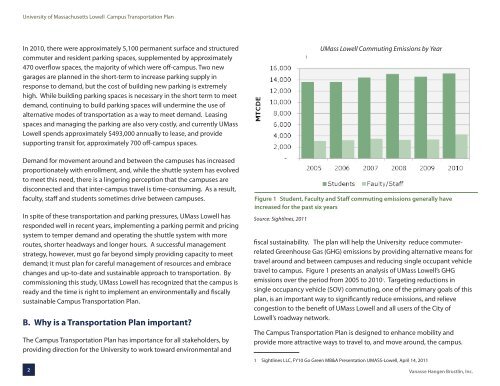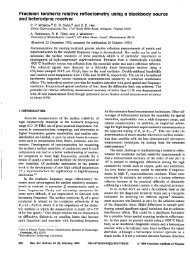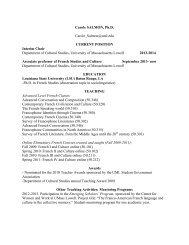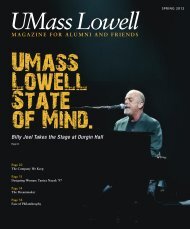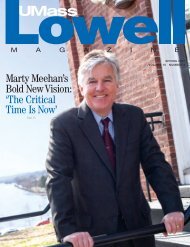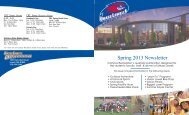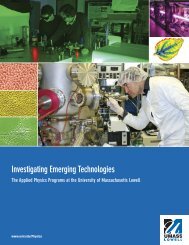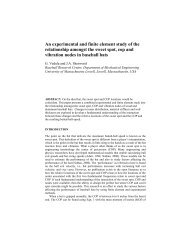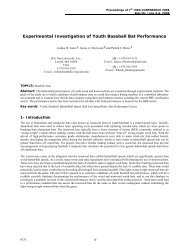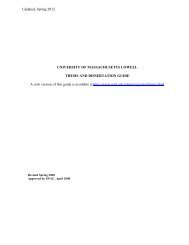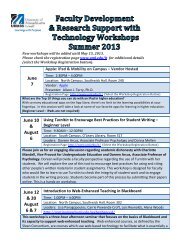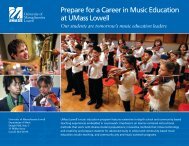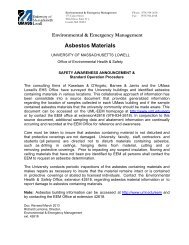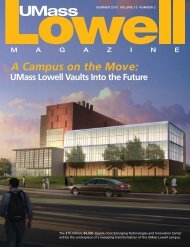comprehensive campus transportation plan - University of ...
comprehensive campus transportation plan - University of ...
comprehensive campus transportation plan - University of ...
You also want an ePaper? Increase the reach of your titles
YUMPU automatically turns print PDFs into web optimized ePapers that Google loves.
<strong>University</strong> <strong>of</strong> Massachusetts Lowell Campus Transportation Plan<br />
In 2010, there were approximately 5,100 permanent surface and structured<br />
commuter and resident parking spaces, supplemented by approximately<br />
470 overflow spaces, the majority <strong>of</strong> which were <strong>of</strong>f-<strong>campus</strong>. Two new<br />
garages are <strong>plan</strong>ned in the short-term to increase parking supply in<br />
response to demand, but the cost <strong>of</strong> building new parking is extremely<br />
high. While building parking spaces is necessary in the short term to meet<br />
demand, continuing to build parking spaces will undermine the use <strong>of</strong><br />
alternative modes <strong>of</strong> <strong>transportation</strong> as a way to meet demand. Leasing<br />
spaces and managing the parking are also very costly, and currently UMass<br />
Lowell spends approximately $493,000 annually to lease, and provide<br />
supporting transit for, approximately 700 <strong>of</strong>f-<strong>campus</strong> spaces.<br />
UMass Lowell Commuting Emissions by Year<br />
Demand for movement around and between the <strong>campus</strong>es has increased<br />
proportionately with enrollment, and, while the shuttle system has evolved<br />
to meet this need, there is a lingering perception that the <strong>campus</strong>es are<br />
disconnected and that inter-<strong>campus</strong> travel is time-consuming. As a result,<br />
faculty, staff and students sometimes drive between <strong>campus</strong>es.<br />
In spite <strong>of</strong> these <strong>transportation</strong> and parking pressures, UMass Lowell has<br />
responded well in recent years, implementing a parking permit and pricing<br />
system to temper demand and operating the shuttle system with more<br />
routes, shorter headways and longer hours. A successful management<br />
strategy, however, must go far beyond simply providing capacity to meet<br />
demand; it must <strong>plan</strong> for careful management <strong>of</strong> resources and embrace<br />
changes and up-to-date and sustainable approach to <strong>transportation</strong>. By<br />
commissioning this study, UMass Lowell has recognized that the <strong>campus</strong> is<br />
ready and the time is right to implement an environmentally and fiscally<br />
sustainable Campus Transportation Plan.<br />
B. Why is a Transportation Plan important?<br />
The Campus Transportation Plan has importance for all stakeholders, by<br />
providing direction for the <strong>University</strong> to work toward environmental and<br />
2<br />
Figure 1 Student, Faculty and Staff commuting emissions generally have<br />
increased for the past six years<br />
Source: Sightlines, 2011<br />
fiscal sustainability. The <strong>plan</strong> will help the <strong>University</strong> reduce commuterrelated<br />
Greenhouse Gas (GHG) emissions by providing alternative means for<br />
travel around and between <strong>campus</strong>es and reducing single occupant vehicle<br />
travel to <strong>campus</strong>. Figure 1 presents an analysis <strong>of</strong> UMass Lowell’s GHG<br />
emissions over the period from 2005 to 2010 1 . Targeting reductions in<br />
single occupancy vehicle (SOV) commuting, one <strong>of</strong> the primary goals <strong>of</strong> this<br />
<strong>plan</strong>, is an important way to significantly reduce emissions, and relieve<br />
congestion to the benefit <strong>of</strong> UMass Lowell and all users <strong>of</strong> the City <strong>of</strong><br />
Lowell’s roadway network.<br />
The Campus Transportation Plan is designed to enhance mobility and<br />
provide more attractive ways to travel to, and move around, the <strong>campus</strong>.<br />
1 Sightlines LLC, FY10 Go Green MB&A Presentation UMASS-Lowell, April 14, 2011<br />
Vanasse Hangen Brustlin, Inc.


